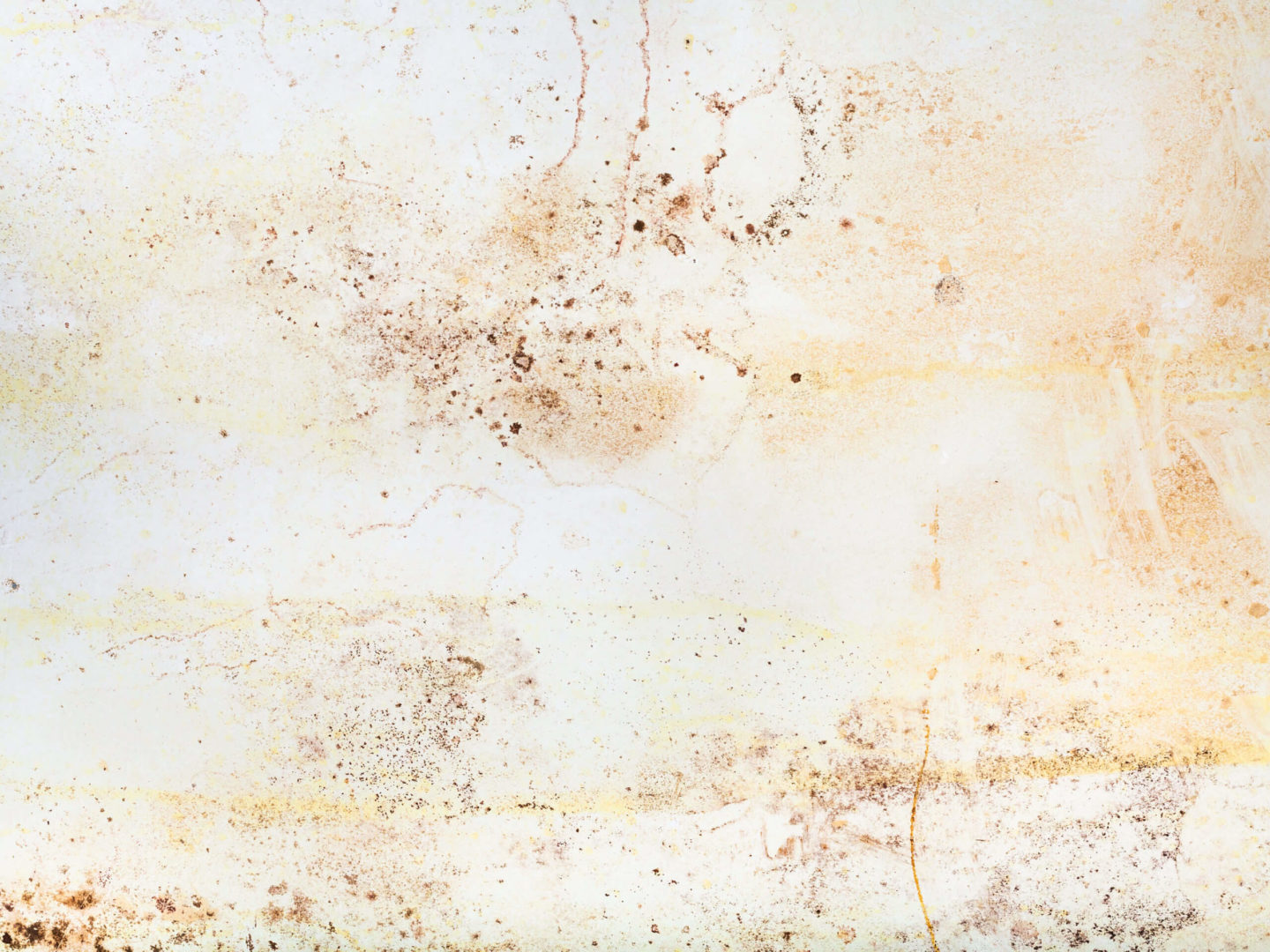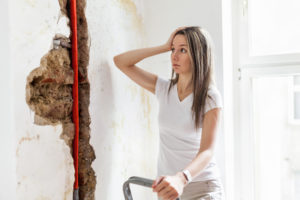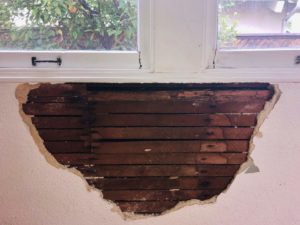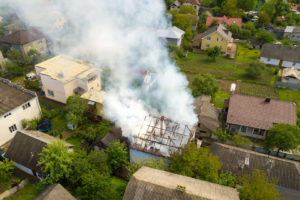Do I need specialist mold insurance? If you have general homeowners insurance you may be pleasantly surprised to see that it includes at least some type of insurance for mold.
Mold is a slippery character when it comes to insurance, though. You see, mold coverage for your Los Angeles property varies according to several factors which we’ll explore below.
Mold Exclusion In Insurance Policies
Who pays for mold remediation? Hopefully your insurance company. However, there are a couple of main reasons why you won’t get mold coverage when you want it.
Ignoring The Source Of The Mold
Leaky roof? One big factor for not getting a payout is if your insurance company considers that you should have dealt with the situation more promptly.
Poor Ventilation Of The Home
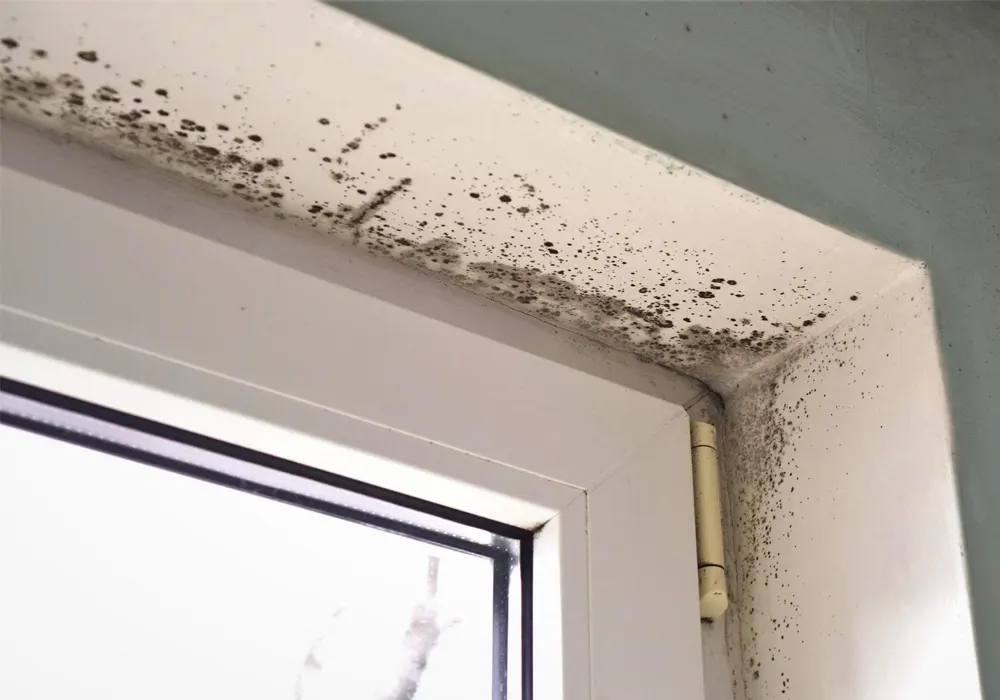
Have you been going through the wet winters here in Los Angeles with no dehumidifier? Your insurance company may say that was a mistake.
Neglecting Appliances
Dishwashers, water heaters and washing machines do need to be maintained. Hand on heart, have you been running your appliances to death while ignoring any small issues that became apparent? Then your insurance company may take a dim view of your mold claim.
Storms
Insurance companies generally believe that a home that’s kept in good condition won’t be damaged by rainwater in a storm. Think about how rain usually gets into a home during a storm.
-
A leaking roof.
-
Improperly sealed windows.
-
Poor irrigation.
-
Neglected gutters.
All of these factors are just a phone call away from fixing, and most are relatively inexpensive. So your home insurance policy probably won’t pay out for mold as a result of these.
Floods
Again, most homeowners’ policies won’t cover floods. It’s important to note that we’re talking about floods from nature here, rather than water damage from appliances such as dishwashers.
Do you live somewhere that’s prone to flooding? Then separate flood insurance is a good idea in case the worst should happen.
How Does Flood Insurance Work?
Flood insurance can cover mold according to your policy, although it may be limited to particular parts of your home like the basement or crawl space. The insurance company will still expect you to get flood water pumped out and dried as soon as possible, so that you mitigate the damage.
That’s where Save The Day Restoration can help. Our experienced crew do such a thorough job that mold won’t grow in the first place.
And if you do have mold after a flood? Flood insurance will still expect you to get the mold removed and claim for it promptly.
Unsuccessful Mold Claim Examples
Here are some real-life examples where mold claims would usually be excluded in a typical homeowner’s insurance policy.
-
Black mold removal if it’s the result of the homeowner failing to use a dehumidifier.
-
Mold growth after a storm that caused water to permeate the home.
-
Mold resulting from floods that entered the home.
-
A long-term leak causing mold even if it was hard to see.
Does Landlord Insurance Cover Mold?
Mold in your rental property? Then make sure you stay on the right side of the law. The California Health & Safety Code states that if mold poses a danger to the health of your tenants, you’re legally obliged to fix it. And you have to do this promptly, too. From the time your tenant notifies you of mold that’s dangerous to their health, you have just 30 days.
If you are renting a property which has mold, you typically have some mold coverage as part of standard landlord insurance.
Say you need black mold removal urgently because your property is dangerous for tenants to live in. It’s likely your landlord’s insurance would cover the rental income you would have made during mold remediation.
When Is Mold Remediation Covered By Insurance?
That depends. Here are some examples of when homeowners insurance would typically pay out for mold remediation.
How Did You Get The Mold In The First Place?
In all of these examples, your home insurance is likely to cover the mold remediation.
-
Your well-maintained water heater springs a sudden leak.
-
There was a fire that was put out with water.
-
A new dishwasher leaked one day and led to mold.
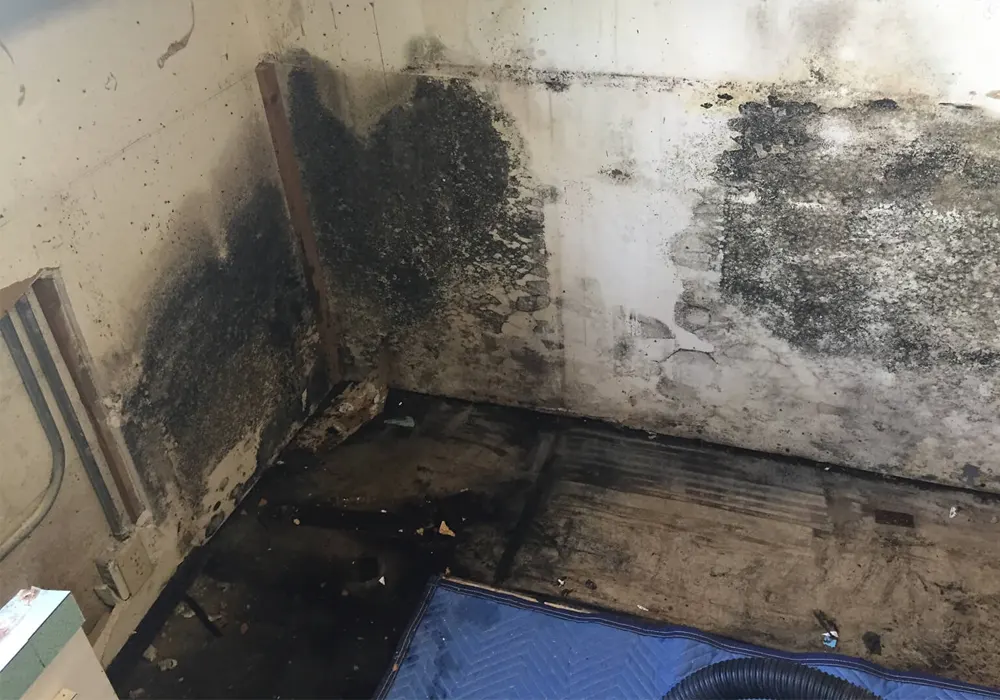
How Long Has The Mold Been There?
This question is vital.
The answer your insurance company wants to hear is “I called as soon as it happened.” Mold grows fast and the longer you leave it the more it will spread and eat into the structure of whatever surface it’s on.
How Do You Make Sure You’re Covered For Mold Remediation?
You can make sure you’re covered for insurance for mold by taking these preventative steps. They will also greatly lessen your chance of getting mold in the first place.
The Roof And Attic
-
Have the roof inspected for small cracks and gaps at regular intervals.
-
Install vents in the attic.
-
Make sure attic insulation never gets damp as the result of leaks, condensation or pests.
Inside The Home
-
Keep your home well ventilated.
-
Make sure windows are well-caulked.
-
Fix any leaks promptly.
-
Use a dehumidifier when the weather is humid and in places which are often damp.
-
Had a flood? Get rid of anything you can’t dry immediately, like carpets and couches.
Kitchen And Bathrooms
-
Clean your bathrooms regularly with bleach.
-
Check your fridge and dishwasher hoses for leaks.
-
Install and maintain exhaust fans in the kitchen and bathroom to eliminate damp air fast.
Outdoors
-
Have your gutters cleaned and maintained regularly.
-
Choose water resistant flooring for areas like bathrooms and basements.
-
Make sure the ground around your home slopes away from the home. This is so that water doesn’t drain into your foundations, crawlspace or basement.
Home Improvements
-
Add mold inhibitors to paint that you use. These are widely available at home improvement stores.
-
Choose mold resistant fabrics such as polyester where you can. Mold likes to grow on more natural fabrics such as cotton and linen.
-
Opt for mold resistant drywall instead of the traditional kind which includes paper.
The key is checking and maintenance. It’s particularly useful for a mold insurance claim if you can prove you’ve had professional maintenance done recently.
What Does “Covered Peril” Mean Regarding Insurance For Mold?
“Covered peril” is just a fancy way to say a disaster that’s covered as part of your insurance policy. Mold often grows as the result of fires being put out with water, or through water leaks in the home.
This is interesting if you’re a homeowner with mold. Because it’s possible that you can get mold coverage because it resulted from one of your covered perils.
However, insurance companies require you to be very fast and clear about mold claims. They won’t pay out for water damage and then way down the line pay out for mold in the same spot. This is why insurance for mold is worth having as a separate item on your policy.
Does Homeowners Insurance Cover Mold From Roof Leaks?
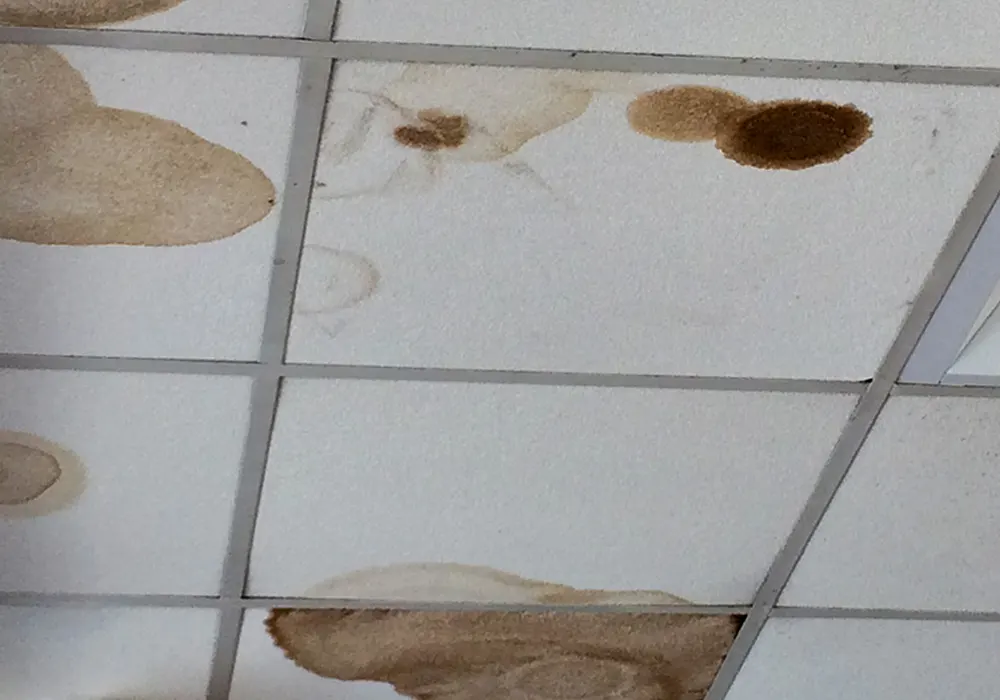
Mold, and insurance for mold is a tricky one where roof leaks are concerned. Say you have a leak after a storm and rain water got in. As long as you notify your insurance company fast and get water damage remediation right away, they should be prepared to pay for the water damage.
But there’s a but.
Home insurance is less generous when it comes to mold coverage due to roof leaks. The insurance company is likely to consider that mold damage is the result of late action on the water damage. Mold is generally an “excluded peril” in this situation.
Check your policy because if you have more comprehensive coverage, mold as a result of roof leaks could be covered.
How Much Does Insurance Pay Out For Mold Remediation?
Check your policy to see exactly what you’re covered for. Most insurance companies will try to reduce the payout with a limit. In general, most homeowners insurance policies will pay from around $1,000 to a maximum of $10,000 for mold remediation.
Some homeowners policies, like for higher value homes, come with better mold insurance coverage included.
How Can You Make Sure Mold Remediation Is Covered By Insurance?
Mold and insurance don’t always get along. Say you have mold as the result of a “covered peril” on your homeowners insurance. Here are some situations where you’re OK.
Covered Peril Examples In Homeowners Insurance
-
Water damage from firefighters putting out a fire.
-
Water leaks from well-maintained appliances.
-
A water heater unexpectedly burst despite being serviced regularly.
Note that in the above examples, you kept a close eye on the upkeep of your appliances. You also called a licensed water damage restoration company like Save The Day Restoration promptly as soon as the water damage hit.
And if you have mold as a result of something else? Then it’s worth researching dedicated insurance for mold so that you can claim on that in the future if necessary.
What To Do If You Find Mold In Your Los Angeles Home
If you’re concerned about your health, the structural integrity of your home as well as mold insurance, follow these steps as soon as you discover mold.
Don’t Touch It!
It’s certainly tempting. If you try to clean it off you’ll move all those toxic mold spores into the air and potentially breathe them in. And the masks you can buy in stores just don’t cut it when mold is involved. Apart from that you can really irritate your eyes, too.
Don’t Cover It Up
Likewise, don’t paint over it. When it comes back, your insurance company can say you didn’t get it professionally removed the first time.
Turn Off The A/C Or Heaters That Blow Air
This is also to stop the mold from spreading around your home any further. Mold spores are super light so they travel on any breeze they can.
Take Some Clear Photos Of The Mold Damage
The insurance company will want proof the mold happened where you say it did. And they’ll need to see the extent of the mold damage, too.
Contain The Mold Spores
Can you avoid that area of your house till we can get to it? If it’s a basement for example it’s easy to close off to the family.
Avoid The Moldy Areas Of Your Home
Where’s the mold? Attics and basements are easily avoided for a while. If it’s the bathroom that’s moldy, call Save The Day Restoration on our 24/7 line which is (562) 246-9908.
Call Your Insurance Company
Whether it’s home, water or mold insurance, when you let your insurance company know the deal ASAP, they’re likely to look very favorably on your situation.
Contact A Licensed And Insured Mold Remediation Company
Mold only gets worse over time. And bleaching it or painting over it just won’t do the trick. As soon as we get on the case, we’ll stop the mold in its tracks.
How Save The Day Restoration Can Make This The Only Mold Claim You’ll Make
We have a wealth of experience in removing mold so it doesn’t come back. In order to keep your house free from mold in the future there are two important factors.
-
Hiring a great mold remediation company.
-
Regular monitoring and prompt action on the part of the homeowner.
Here are some ways that our specialist mold removal process stops mold in its tracks.
-
Tarping everything off so the mold spores don’t spread.
-
Removing areas affected by mold such as drywall.
-
Rebuilding stronger than ever, with materials that inhibit mold growth in the first place.
-
Air quality testing to make sure all the mold spores have been killed.
-
Advising on how you can easily stop mold in the future, such as through smarter ventilation and home maintenance.
Save The Day Restoration Is A Great Choice For Los Angeles Mold Remediation
Still have questions? We can advise you further on mold insurance coverage as well as restoring your home so it’s strong, safe and clean again. Save The Day Restoration is fully licensed and insured, and we’re experts in the entire mold remediation process from start to finish.
To get going on the mold removal in your home, call us 24/7 at (562) 246-9908 or email us at [email protected].

